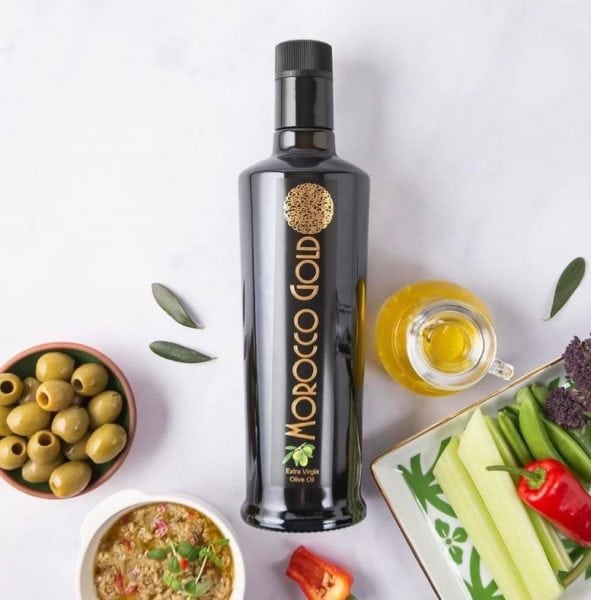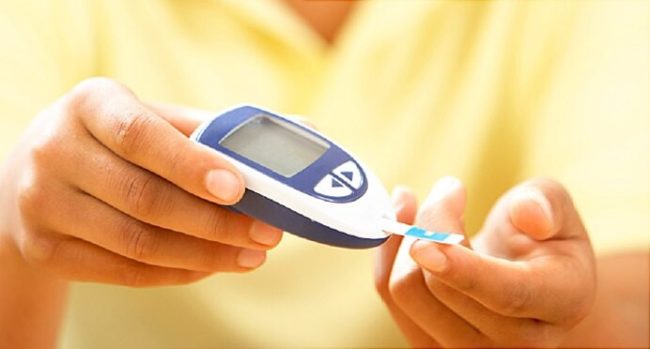Shows how both these diets, including best olive oil – extra virgin olive oil – delivers more health benefits.
Updated December 14th 2022

Summary
- The Keto Diet and the Mediterranean Diet have a lot in common – including their effects on managing blood sugar levels and preventing preventing Type 2 diabetes.
- Diabetes often lowers HDL (good) cholesterol levels and raises triglycerides and LDL (bad) cholesterol levels. Both increase the risk for heart disease and stroke.
- The high levels of polyphenols in cold pressed extra virgin olive oil can protect against coronary heart disease by reducing cholesterol absorption, which in turn can result in decreased delivery of cholesterol to the liver.
- Studies have demonstrated better insulin secretion and better regulation of blood sugar levels following the inclusion of extra virgin olive oil in participants lunch meals.
- Beneficial effects of natural plant polyphenols on the human body have been evaluated in a number of scientific research projects.
- Morocco Gold extra virgin olive oil is high in polyphenols, including Tyrosol.
- Tyrosol is one of the most abundant polyphenols in extra virgin olive oil, where they occur as such, or in the form of esters of elenolic acid.
- Its beneficial properties for human health are strongly related to the ability of the molecule to scavenge free radicals and reactive oxygen/nitrogen species as well as to activate endogenous antioxidant systems in the body.
Contents
- Mediterranean and Keto Diets with Olive Oil
- Less Fiber With Keto Diet Than Mediterranean Diet
- Which Is Best: Mediterranean Diet Or Keto Diet?
- How Olive Oil Can Stabilise Blood Sugar Levels
- Blood Sugar Levels And Extra Virgin Olive Oil
- Morocco Gold Extra Virgin Olive Oil Is High In Polyphenols
- Tyrosol : A Key Polyphenol In Morocco Gold Extra Virgin Olive Oil
- Health Benefits Of Tyrosol
- Extra Virgin Olive Oil & Diabetes : A Further Study
- What is blood sugar (glucose)?
Mediterranean and Keto Diets with Olive Oil
You may think of the Keto Diet and the Mediterranean Diet as two very different things. But as it turns out, they have a lot in common – including their effects on blood sugar levels. In fact, research shows that both diets can be helpful for people with diabetes or prediabetes. Here’s a look at how keto and mediterranean diet work to improve blood sugar control, and why they might be good options for you.
According to a new study from The American Journal of Clinical Nutrition, both The Mediterranean Diet and The Keto Diet were shown to be helpful in managing blood sugar levels and preventing preventing Type 2 diabetes.
As reported in parade.com, the study followed 40 people with pre-type two diabetes as they adhered to the Mediterranean diet for 12 weeks. Then, they committed to the ketogenic diet for 12 weeks. Researchers pointed out that there are some ways the diets are similar. What they have in common is that both are low-carbohydrate. Non-starchy vegetables, foods low in sugar, and avoiding refined grains are all key components of both diets. However, the key differences noted were that the Mediterranean diet includes legumes, fruit, and whole grains while the ketogenic diet minimizes these foods.
Less Fiber With Keto Diet Than Mediterranean Diet
As well as establishing that both diets contributed to stabilising blood sugar, study researchers found that people on the ketogenic diet consumed less fiber than those on the Mediterranean diet.
Speaking in Parade.com, Registered dietitian Melissa Rifkin, RD, says that fiber is a key nutrient for keeping blood sugar levels steady. “The Mediterranean diet is rich in fruits, veggies, nuts, seeds, legumes, and whole grains, which all contain fiber. Per serving, most of these foods contain at least two grams of fiber, and some have over four grams in a single serving,” she says.
Registered dietitianAyat Sleymann, RDN, adds that besides eating a diet rich in the foods mentioned above, following the Mediterranean diet also includes eating fish and seafood two times a week, eating moderate portions (daily or weekly) of eggs, dairy, cheese, and eggs, and rarely eating meat, ultra-processed foods, and sweets.
Rifkin explains that fiber slows down digestion which reduces the speed at which carbohydrate, including sugar, enters the bloodstream. “When carb slowly enters the bloodstream there is less likely to be a significant jump in blood sugar.” she says. “Also by replacing saturated fats with more heart-healthy fats like olive oil, sensitivity to insulin improves,” Sleymann adds. This is how the Mediterranean diet keeps blood sugar levels steady.
Even though study participants who followed the ketogenic diet consumed less fiber than when they stuck to the Mediterranean diet, Sleymann says the reason why the eating plan was successful in keeping blood sugar levels steady is because it’s low-carb. “[This] eliminates large spikes in blood sugar that can occur when carbohydrates, mainly simple carbohydrates, are consumed,” she says.
Which Is Best: Mediterranean Diet Or Keto Diet?
As we have seen from the research, both the Mediterranean diet and the ketogenic diet had positive effects on blood sugar levels, so which one is best to follow?
It is worth noting that, when it comes to overall heart health, The Mediterranean Diet is frequently reported to come out on top.
The British Heart Foundation carried out a study that showed increasing your extra virgin olive oil consumption by 10g a day could cut your risk of cardiovascular death and heart disease by 10 per cent.
Researchers analysed the effect of a Mediterranean diet on the prevention of cardiovascular disease in more than 7,200 men and women between 55 and 80 years old over an average of five years.
Participants were split randomly into three groups – a Mediterranean Diet supplemented with extra virgin olive oil, a Mediterranean Diet supplemented with nuts, and a control group following a low fat diet.
Extra virgin olive oil is a better quality than ordinary olive oil as it contains high levels of antioxidants also found in grape skins, olives and sesame seeds which are thought to benefit the heart. A second study reanalysed the results of the research and found the antioxidants also helped reduce mortality rates.
How Olive Oil Can Stabilise Blood Sugar Levels
According to the American Heart Association (AHA) diabetes often lowers HDL (good) cholesterol levels and raises triglycerides and LDL (bad) cholesterol levels. Both increase the risk for heart disease and stroke. But, the high levels of polyphenols in cold pressed extra virgin olive oil can protect against coronary heart disease by reducing cholesterol absorption, which in turn can result in decreased delivery of cholesterol to the liver.

Foods Which Reduce The Risk Of High Cholesterol And Diabetes
According to a recent report in ActiveBeat.com Olive Oil is one of ten foods which can help reduce your levels of LDL (bad) cholesterol.
The report explains how olive oil contains heart-healthy phytosterols, which are plant-based compounds that help block cholesterol absorption.
Researchers at Biofortis Clinical Research, claim that consuming extra virgin olive oil (EVOO) decreases heart rate and diastolic blood pressure. The study monitored the effects of extra virgin olive oil on a group of 54 healthy male and female participants, for a total of 21 days and discovered that olive oil decreased LDL (bad) cholesterol by 11-percent. Interestingly enough, the same study found that corn oil was able to lower total cholesterol by roughly 9-percent.
Blood Sugar Levels And Extra Virgin Olive Oil
Regulation of blood sugar (glucose) especially after eating is one regulatory system that has a definite friend in Extra Virgin Olive Oil. One recent study on individuals diagnosed with impaired fasting glucose (IFG) helps explain the ability of Extra Virgin Olive Oil to improve blood sugar regulation.
Like this name implies, IFG is a condition in which blood sugar levels are too high, even when no food is being eaten and digested. However, in this particular study, participants were given a little less than one tablespoon of Extra Virgin Olive Oil along with a familiar lunch meal of pasta, salad, fruit, and a slice of ham. When the participants’ insulin and blood sugar levels were measured at one hour and two hours after lunch, their blood sugar levels were found to be significantly lower due to this added Extra Virgin Olive Oil.
Researchers for this study went one step further, however. They looked at potential ways in which Extra Virgin Olive Oil might have produced these desirable effects. What they found were higher levels of incretins, specifically glucagon-like peptide-1 (GLP-1) and glucose-dependent insulinotropic polypeptide (GIP) in the blood of participants after consuming Extra Virgin Olive Oil. Since these incretins are molecules that stimulate more insulin production, raising their levels resulted in more insulin secretion and more removal of sugars from the blood.
In short, these study participants achieved better insulin secretion and better regulation of blood sugar levels following their lunch meal through the addition of Extra Virgin Olive Oil.
How Can Extra Virgin Olive Oil Help Improve Blood Sugar Levels

Extra Virgin Olive Oil is probably the most extensively researched foodstuff on the planet and the health benefits are evidence based. Thanks to the recent spotlight on the Mediterranean Diet, extensive research has been done on the composition of best olive oil. What has been discovered is an extensive list of phytonutrients; one of the most praised is its polyphenols.
Beneficial effects of natural plant polyphenols on the human body have been evaluated in a number of scientific research projects. Bioactive polyphenols are natural compounds of various chemical structures. Their sources are mostly fruits, vegetables, nuts and seeds, roots, bark, leaves of different plants, herbs, whole grain products, processed foods (dark chocolate), as well as tea, coffee, and red wine. Polyphenols are believed to reduce morbidity and/or slow down the development of cardiovascular and neurodegenerative diseases as well as cancer. Biological activity of polyphenols is strongly related to their antioxidant properties. They tend to reduce the pool of reactive oxygen species as well as to neutralize potentially carcinogenic metabolites. A broad spectrum of health-promoting properties of plant polyphenols comprises antioxidant, anti-inflammatory, anti-allergic, anti-atherogenic, anti-thrombotic, and anti-mutagenic effects. Scientific studies present the ability of polyphenols to modulate the human immune system by affecting the proliferation of white blood cells, and also the production of cytokines or other factors that participate in the immunological defense. The aim of the review is to focus on polyphenols of olive oil in context of their biological activities.
Keywords: olive oil, Olea europea, polyphenols, oleuropein, hydroxytyrosol, anticancer therapy
Polyphenols have been shown to reduce morbidity and/or slow down the progression of cardiovascular, neurodegenerative, and cancer diseases. The mechanism of action of polyphenols strongly relates to their antioxidant activity. Polyphenols are known to decrease the level of reactive oxygen species in the human body. In addition, health-promoting properties of plant polyphenols comprise anti-inflammatory, anti-allergic, anti-atherogenic, anti-thrombotic, and anti-mutagenic effects. There is a body of research demonstrating their ability to modulate the human immune system by affecting the proliferation and activity of white blood cells, as well as the production of cytokines or other factors that participate in immunological defence.
Morocco Gold Extra Virgin Olive Oil Is High In Polyphenols
Our latset harvest has produced a low acidity level of 0.2% together with the highest level of polyphenols yet seen in our extra virgin olive oil.
| 3,4 DHPEA-EDA | 85 mg/kg |
| Hydroxytyrosol | 5 mg/kg |
| Lignanes | 26 mg/kg |
| Ligstroside aglycone (p, HPEA-EA) | 20 mg/kg |
| Oleuropein aglycone (3,4 DHPEA-EA) | 71 mg/kg |
| Oleocanthal p, HPEA-EDA | 65 mg/kg |
| Tyrosol | 372 mg/kg |
| Polyphenols Total | 644 mg/kg |
Tyrosol : A Key Polyphenol In Morocco Gold Extra Virgin Olive Oil
Tyrosol is a phenylethanoid, a derivative of phenethyl alcohol. It is a natural phenolic antioxidant present in a variety of natural sources. The principal source for human diet is in high quality extra virgin olive oil like Morocco Gold. As an antioxidant, tyrosol can protect cells against injury due to oxidation.
Along with hydroxytyrosol, tyrosol is one of the most abundant polyphenols in extra virgin olive oil, where they occur as such, or in the form of esters of elenolic acid. There is an increasing level of research into these polyphenols and their properties to determine which is the most significant contributor towards the range of health benefits associated with high quality extra virgin olive oil.
Tyrosol is a colourless solid at room temperature, melting at 91–92°C and slightly soluble in water. Hydroxytyrosol on the other hand appears as a clear colourless liquid at room temperature. It is now believed that this affects the rate of ‘uptake’ when ingested with hydoxytyrosol acting more quickly in the gut, however tyrosol accumululating intercellularly over time to provide longer term protection due to its higher concentration and good bioavailability.
Source: Sciencedirect.com
Health Benefits Of Tyrosol
Its beneficial properties for human health are strongly related to the ability of the molecule to scavenge free radicals and reactive oxygen/nitrogen species as well as to activate endogenous antioxidant systems in the body. Free radical scavenging properties have been convincingly confirmed in studies on rats with alloxan-induced diabetes mellitus.
Extra Virgin Olive Oil & Diabetes : A Further Study
In a further study, conducted at Sapienza University in Romen, researchers examined the health benefits of a traditional Mediterranean diet, including extra virgin olive oil for people with diabetes
This was a small study involving only 25 participants, all of whom ate a typical Mediterranean lunch consisting primarily of fruits, vegetables, grains and fish on two separate occasions. For the first meal, they added 10g of extra virgin olive oil. For the second, they added 10g of corn oil. After each meal, the participants blood glucose levels were tested. The rise in blood sugar levels was much smaller after the meal with extra virgin olive oil than after the meal with corn oil.
“Lowering blood glucose and cholesterol may be useful to reduce the negative effects of glucose and cholesterol on the cardiovascular system,” said Francesco Violo, lead author of the study.
The findings were consistent with previous studies, which have linked extra virgin olive oil to higher levels of insulin, making it beneficial to people with type 2 diabetes.
More surprising, however, were the reduced levels of low-density lipoprotein (LDL), or “bad” cholesterol, associated with the extra virgin olive oil meal.
The researchers stressed that consuming extra virgin olive oil on its own is not going to provide the benefits observed during the study. Rather, it has to be consumed within the context of a balanced diet.
Extra virgin olive oil lowers blood glucose and cholesterol .
What is blood sugar (glucose)?
Blood sugar (glucose) is the key to keeping the working of the body in good condition. When blood sugar levels start to fluctuate, the body starts showing signs of unhealthy functioning.
Glucose plus healthy fat (monosaturated fats such as are found in Extra Virgin Olive Oil) is the preferred source of energy in the body. While glucose is important, it is also important to keep it in moderation. When we eat, our body immediately starts processing glucose. Enzymes breakdown with the help of pancreas.
In some people (diabetics) people cannot completely rely on pancreas to work. Diabetes is a condition where the pancreas doesn’t produce adequate insulin.
Maintaining glucose levels is important for normal functioning of the body. The ideal range of sugar levels is 90-130 mg/dL while fasting, whereas post meals, it needs to be less than 180 mg/DL.
Reasons why blood sugar rises:
- Heavy meals
- Stress
- Underlying illness
- Sedentary lifestyle
- Skipping medication
Further ways to lower blood sugar:
You should have foods you enjoy but keep a check on what goes inside the body because food can help in diabetes care and diabetes management. As well as Extra Virgin Olive Oil certain lifestyle choices that help manage blood glucose levels include;
- Raw cooked food: Opt for low carb vegetables such as eggplants, tomatoes, sprouts and mushrooms. You can top it with some pepper or garlic seasoning.
- Green leafy food: If you enjoy salads, then you can try a spinach salad. They are rich in health and low in carb. You could top it with some chia seeds for the extra crunch.
- Low calorie drinks: Water is best, but you do need an alternative sometimes. You could try some cinnamon tea. They are low carb and also keep you feeling full.
- Nuts & Seeds: Nuts prevent heart disease and control blood sugar levels. Seeds like flax seeds help improve fasting glucose levels and lower bad cholesterol.
- Exercise: A sedentary lifestyle is the major cause of diabetes. It is essential that you invest in some low duty exercise daily along with your medication.
Individuals who are suffering from diabetes and related issues usually show drastic improvement in their development when they self-participate in diabetes management. It is recommended to track your blood glucose levels regularly using a glucometer as to a keep track of your blood glucose level patterns.
In the next of our series of articles that looks at the science behind the health-related benefits of high-quality Extra Virgin Olive Oil like Morocco Gold we look at the positive impact on blood sugar (glucose) levels.
Source: Beatoapp.com

